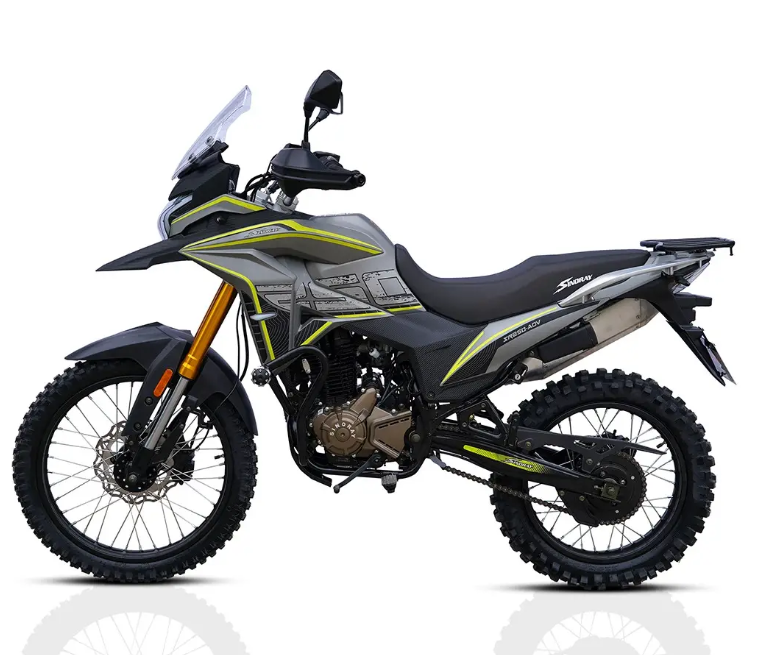The Evolution of Modern Motorcycle Manufacturing Excellence
The landscape of motorcycle manufacturing has transformed dramatically over the past decade, with innovative factories reshaping how two-wheelers are produced and distributed globally. At the forefront of this evolution, state-of-the-art motorcycle factory facilities are revolutionizing production methods, quality control, and international trade relationships. Understanding this transformation is crucial for anyone interested in the motorcycle industry's future.
Today's motorcycle factory operations blend cutting-edge technology with precision engineering, creating an ecosystem where efficiency meets excellence. The integration of automated systems, skilled craftsmanship, and rigorous quality control has elevated certain manufacturers to unprecedented heights in the global market. This new era of manufacturing excellence has set new benchmarks for the entire industry.
Advanced Manufacturing Technologies and Processes
Innovative Production Line Systems
Modern motorcycle factory facilities leverage sophisticated production line systems that combine robotics with human expertise. These advanced assembly lines utilize smart sensors, automated quality checks, and real-time monitoring systems to ensure every component meets exact specifications. The integration of Industry 4.0 principles has resulted in unprecedented precision and consistency in motorcycle production.
Digital twin technology allows manufacturers to simulate and optimize production processes before implementation, reducing errors and improving efficiency. This technological advancement has revolutionized how motorcycles are assembled, leading to higher quality products and faster production cycles.
Quality Control and Testing Protocols
Leading motorcycle factory operations implement comprehensive quality control measures at every production stage. From raw material inspection to final product testing, multiple checkpoints ensure each motorcycle meets international safety and performance standards. Advanced testing facilities include dynamometers, environmental chambers, and durability testing equipment.
These rigorous testing protocols often exceed industry requirements, demonstrating a commitment to excellence that resonates with global buyers. Each motorcycle undergoes extensive road simulation tests and quality inspections before receiving approval for distribution.
Supply Chain Innovation and Global Distribution
Strategic Sourcing and Component Management
Successful motorcycle factory operations maintain robust relationships with global suppliers, ensuring access to high-quality components and materials. Strategic sourcing initiatives focus on reliability, cost-effectiveness, and sustainability, creating a resilient supply chain that can weather market fluctuations.
Advanced inventory management systems utilize artificial intelligence to predict component needs and optimize stock levels. This proactive approach minimizes production delays while maintaining cost efficiency throughout the manufacturing process.
International Logistics Excellence
The ability to efficiently distribute motorcycles worldwide requires sophisticated logistics networks. Leading manufacturers have developed streamlined shipping processes, utilizing multiple transportation modes and regional distribution centers to ensure timely delivery to international markets.
Digital tracking systems provide real-time updates on shipment status, while dedicated customs clearance teams facilitate smooth international transactions. This comprehensive approach to global distribution has become a crucial differentiator in the competitive motorcycle market.

Sustainability and Environmental Responsibility
Green Manufacturing Practices
Modern motorcycle factory facilities increasingly embrace sustainable manufacturing practices. From solar-powered production lines to water recycling systems, environmental consciousness has become integral to operations. These initiatives not only reduce environmental impact but also appeal to environmentally conscious consumers worldwide.
Advanced waste management systems and energy-efficient equipment demonstrate a commitment to reducing the carbon footprint of motorcycle production. Many facilities have achieved significant reductions in energy consumption and waste generation through these initiatives.
Sustainable Material Innovation
Leading manufacturers are pioneering the use of sustainable materials in motorcycle production. Research and development teams explore alternatives to traditional materials, focusing on recyclability and environmental impact without compromising performance or safety.
The integration of bio-based composites and recycled materials showcases how motorcycle factory operations can balance environmental responsibility with product quality. These innovations often result in lighter, more efficient vehicles that meet both environmental and performance standards.
Workforce Development and Expertise
Technical Training Programs
Success in motorcycle manufacturing relies heavily on skilled workforce development. Leading facilities invest significantly in comprehensive training programs that combine traditional craftsmanship with modern technical skills. These programs ensure workers can operate advanced equipment while maintaining high-quality standards.
Continuous education initiatives keep staff updated on the latest manufacturing technologies and techniques. This commitment to workforce development creates a team capable of producing world-class motorcycles while adapting to industry innovations.
International Certification and Standards
Top motorcycle factory operations maintain multiple international certifications, demonstrating compliance with global quality and safety standards. Regular audits and certification renewals ensure continued adherence to these standards, building trust with international partners and customers.
Staff training includes detailed understanding of international standards and regulations, ensuring compliance at every production stage. This comprehensive approach to certification and standards has become essential for success in global markets.
Frequently Asked Questions
What makes a motorcycle factory internationally competitive?
International competitiveness in motorcycle manufacturing stems from advanced technology integration, strict quality control measures, efficient supply chain management, and comprehensive workforce training programs. Additionally, maintaining international certifications and implementing sustainable practices significantly contributes to global market success.
How do modern motorcycle factories ensure consistent quality?
Modern motorcycle factories employ multiple quality assurance measures, including automated inspection systems, comprehensive testing protocols, and strict quality control checkpoints throughout the production process. Advanced monitoring systems and regular staff training ensure consistent quality standards are maintained.
What role does sustainability play in motorcycle manufacturing?
Sustainability has become increasingly important in motorcycle manufacturing, encompassing energy-efficient production methods, waste reduction initiatives, and the use of environmentally friendly materials. These practices not only reduce environmental impact but also appeal to conscious consumers and comply with international environmental regulations.
How do motorcycle factories maintain global supply chain efficiency?
Global supply chain efficiency is maintained through strategic supplier partnerships, advanced inventory management systems, and sophisticated logistics networks. Digital tracking systems, automated ordering processes, and regional distribution centers help ensure smooth international operations and timely delivery.

